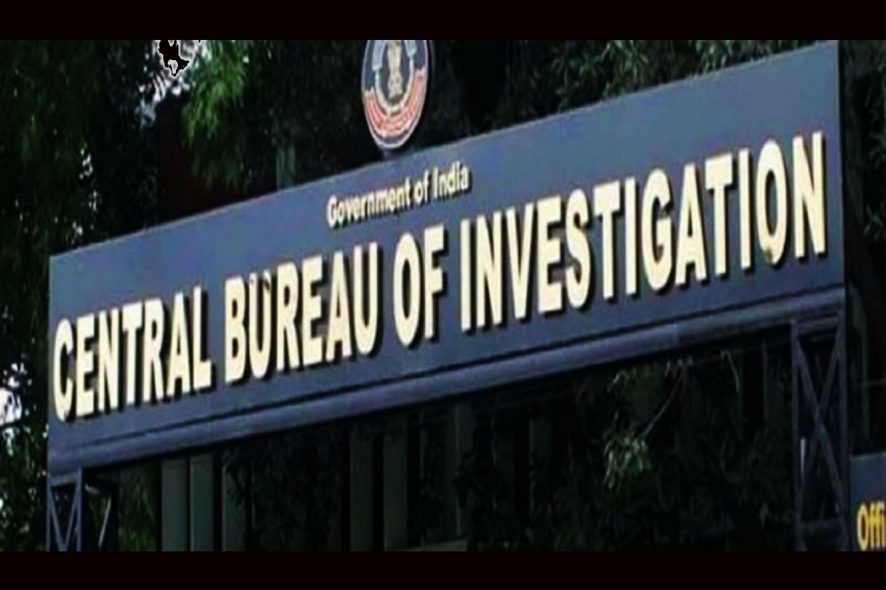Central Bureau of Investigation (CBI): The Court of Shivank Singh, Special Judicial Magistrate (CBI) while convicting the accused of the offences under Sections 120B, 420 of Penal Code, 1860 acquitted the accused of the offences under Sections 467, 468, 471 of Penal Code, 1860.
In the present matter, Alishan Khan with Asad Ali (accused in the present matter) were accused of criminal conspiracy with each other for dishonestly and fraudulently availing the benefit of wrongful gains to themselves and subsequently causing wrongful loss to the Department of Customs. In that process, evasion of the payment of customs duty, act of falsely claiming themselves as Manufacturer Exports with the support of forged documentation was carried out. Further the facilities otherwise available to firms were availed, again with forged documents, to waive off the condition to deposit bank guarantee. Subsequently, they again approached the office of Jt. Directorate General of Foreign Trade (DGFT) for issue of an advance import licence for a Cost Insurance and Freight (CIF) value of Rs. 2.02 Crores which was almost 20 times the value of the earlier licence. It was during investigation, that the exports claims so made were also found to be false. Interestingly, the firm or the unit from where they supposedly functioned was also found to be non-existent.
Therefore, the substantial question was of the role of the accused in the entire criminal transaction and involvement in the affairs of the non-existent firm.
The prosecution examined 25 witnesses, and intriguingly, the defence had no witness in support.
The Court while taking note of the testimonies of the witnesses so put forth, arguments advanced and charges levied, considered it appropriate to deal with the provisions of all substantive offences one by one.
While acquitting under Section 467 of IPC, the Court referred to, Sheila Sebastian v. R. Jawaharaj, (2018) 7 SCC 3, wherein it was held that the charge of forgery cannot be imposed on a person who is not the maker of the same. For Section 468 of IPC, the court was firm that use of the forged shipping bills, rent receipts, etc. were not proved beyond reasonable doubt. And further for Section 471 read with 467 of IPC, was of the opinion that, the evidence on record revealed that the accused was the beneficiary of the forged documents “…but it is not established by the prosecution that accused had used the very ‘forged documents’ in question as genuine. Law is settled on this point, that however strong the suspicion maybe, it cannot take place of proof…”.
For conviction under Section 420 of IPC, after a conjoint reading of the testimonies of the witnesses and the corroborating evidences, the Court very firmly stated that, “the prosecution has very clearly manifested Asad Ali’s role in the entire chain of transaction and has proved that it was Asad Ali who had acted upon, manoeuvered and operated the affairs of M/s United Exports sub rosa…”. For Section 120-B, the Court mightily opined that, “…it is settled law that in the case of conspiracy there cannot be any direct evidence. Privacy and secrecy are more characteristics of a conspiracy, than of a loud discussion in an elevated place open to public view…”. “…the circumstances proved before, during and after the concurrence have to be considered to decide about the complicity of the accused…”. “…It would have been difficult for any of the accused, to execute alone such conspiracy or cheating. But with the combined efforts they were able to do the same…”.
Therefore, the Court after considering the entire facts and circumstances, convicted the accused for the offence under Section 120-B of IPC, to undergo rigorous imprisonment of 3 years and pay fine of Rs. 10,000/- and for the offence under Section 420 of IPC, to undergo rigorous imprisonment for 03 years and pay fine of Rs. 10,000/- which shall run concurrently. Also, the accused was entitled to set off under Section 428 of the Criminal Procedure Code, 1973 for the period already undergone in judicial custody, if any.[CBI v. Asad Ali, 5103092/2005 decided on 01-04-2021]






